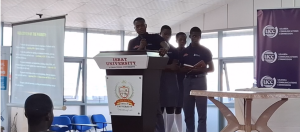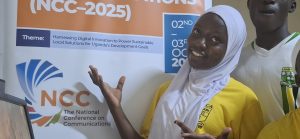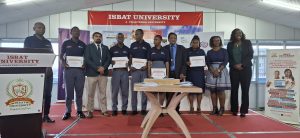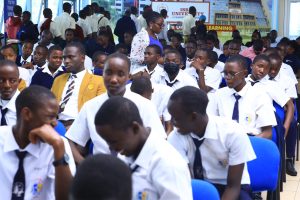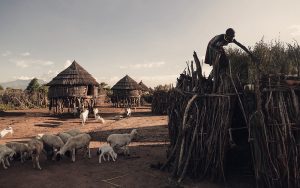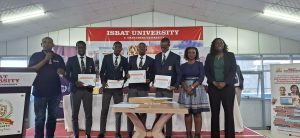Apala Secondary School Launches ICT Club, Strengthens Commitment to Digital Empowerment
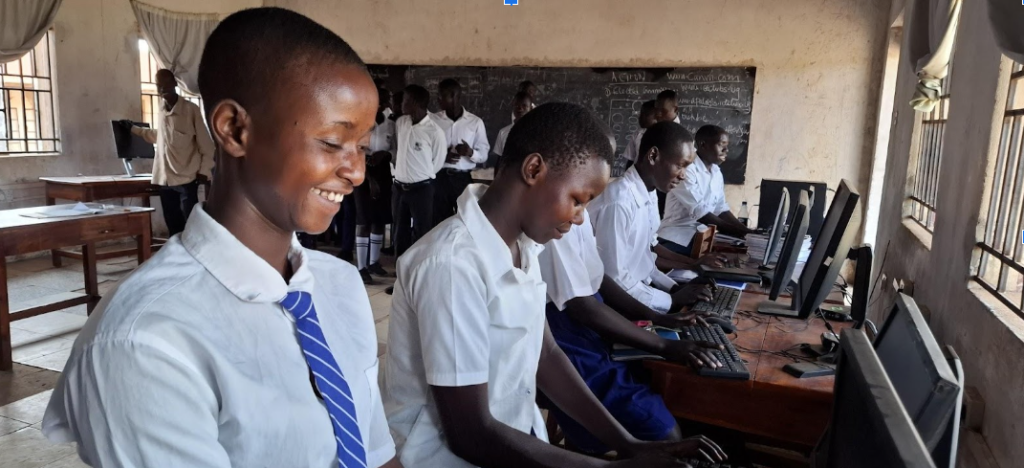
On 12th February 2025, Apala Secondary School in Alebtong District hosted a successful ICT Club launch and digital skills training session, conducted by KAWA Uganda with support from the Uganda Communications Commission (UCC). The event marked a significant milestone in the school’s efforts to integrate ICT into learning, build student-led digital initiatives, and create an inclusive environment for innovation.

The training introduced students to a variety of digital tools and essential technical practices. Using a set of 11 available desktop computers—10 of which were networked—learners engaged in practical exercises ranging from equipment scheduling to basic troubleshooting. They explored virus management, system reinstallation, and safe handling of ICT hardware. An entire session was dedicated to internet safety, emphasizing responsible browsing habits, protection of personal data, and the dangers of online scams.
Leadership development was central to the day’s activities. With support from the school administration, students held elections to form the first ICT Club executive. This participatory approach helped establish a sense of ownership and accountability from the outset. To guide the club’s operations, a standardized ICT Club Constitution was shared, detailing roles, responsibilities, and governance structures. This framework is expected to ensure sustainability even beyond KAWA’s direct involvement.
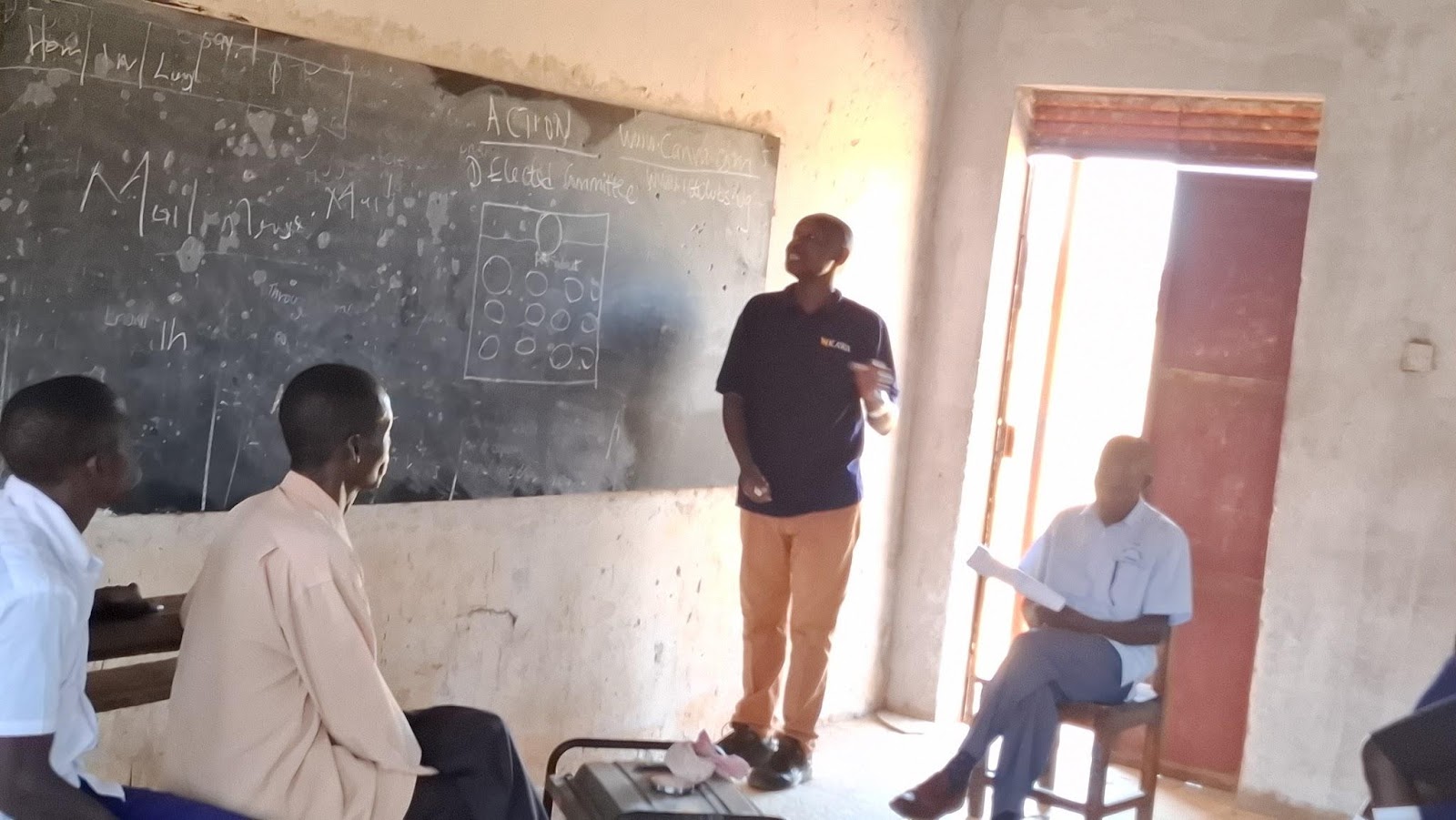
Throughout the training, learners also explored the ICT Club Portal (www.ictclubs.ug), where they can access additional tutorials, activity templates, and presentation materials. A digital version of the ICT Club Handbook was shared with both students and patrons, offering a practical guide for organizing meetings, implementing activities, and tracking club progress. The training also included introductory programming with Scratch and Python, alongside basic concepts of Artificial Intelligence and how it can be applied to solve local problems.
Recognizing that successful implementation depends on more than student enthusiasm, KAWA facilitated a separate planning session with the headteacher, ICT teachers, and club patrons. Together, they began drafting an annual activity calendar to ensure the club operates consistently throughout the school year. This engagement also helped align expectations and clarify roles among staff, further strengthening institutional support for the club.
Despite the positive outcomes, the session was not without challenges. Limited internet connectivity emerged as a major barrier, affecting access to research materials, software downloads, and collaborative tools. These limitations reduced the overall learning experience and highlighted the need for investment in faster and more reliable internet access. Additionally, the school’s current digital infrastructure restricts real-time collaboration and access to external educational resources.
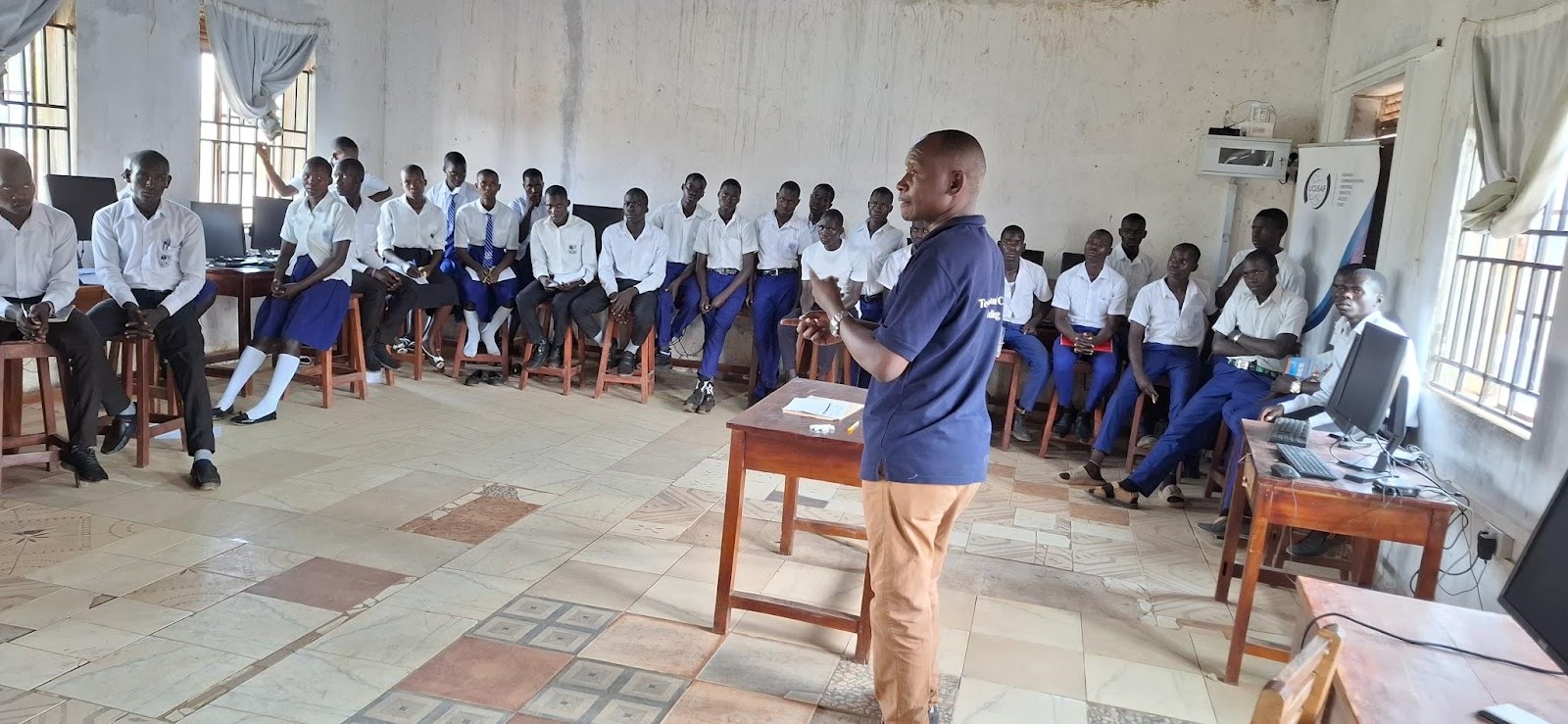
KAWA Uganda reaffirmed its commitment to supporting Apala Secondary School through regular mentorship, follow-up workshops, and technical support. The school is also expected to take part in regional and national ICT innovation competitions under UCC’s framework, further expanding opportunities for learners to apply their skills in real-world scenarios.
With a motivated student body, a functional ICT Club structure, and growing institutional engagement, Apala Secondary School is taking concrete steps toward building a digitally literate and forward-looking learning environment. The ICT Club now stands as a platform for continuous learning, creativity, and student-led innovation in Alebtong.

